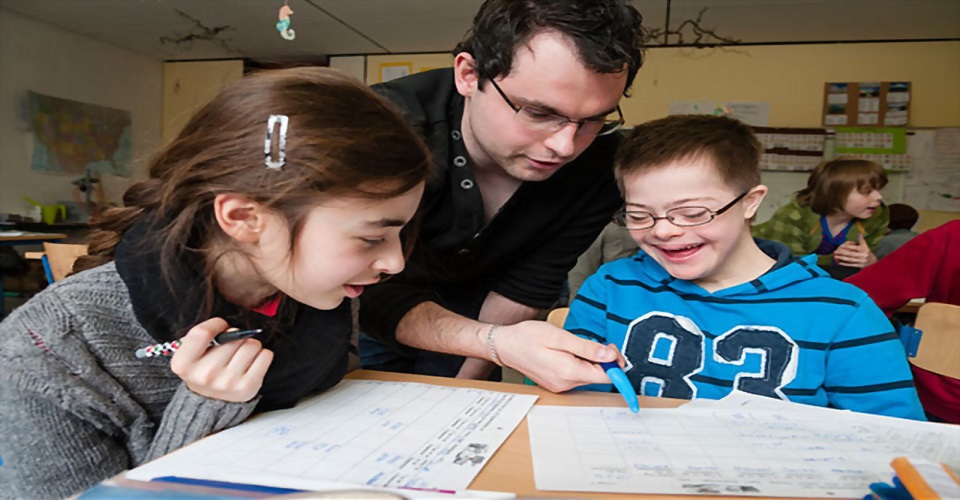The Impact of Education Psychology Relationship on The Future Special Needs Educator
13th March 2020

It goes without saying that psychology is closely related to education. Education is the modification of behaviour in a desirable direction or in a controlled environment and psychology is the study of behaviour or science of behaviour. To modify it or to bring about some changes in it, it is necessary to study the science of behaviour. Thus, education and psychology are logically related. In the following lines, we will have a look at the different basics of the education-psychology relationship, learning about which can be beneficial for the development of the future special needs educators, who are currently pursuing the learning disability courses and are expected to make a mark in the sphere of special education in the future.
The developmental stages of children and characteristics are very essential factors which the teacher must know in order to be a successful teacher. The traditional education was subject centered and teacher dominated. But the modern concept of education has been changed into learning centered to learner centered. This is something which is essential for the future educators to understand and inculcate, especially when they are involved in educating children with special needs.
It is the child who is to learn according to his needs, interests and capacities. Hence, there is no doubt that a knowledge of psychology is quite essential for planning and organizing any educative effort. We will have a look at the following points that are essential to be kept under consideration for the learners of the learning disability courses when they start their career as the educators of children with special needs.
1. Objectives
The objectives of special needs education at different stages have a psychological base, especially when it comes to educating the young learners. This is a very important point to be kept in mind for the future special needs educators while they develop themselves to become successful in the sphere of educating the children with special needs.
2. Curriculum
The way in which a curriculum is prepared plays a huge role in the development of the young learners who have special needs and the educators who are in charge of their education need to be prepared with the curriculum that will cater to the step-by-step progress of the children. Preparation of curriculum for different stages as per the age, ability and capacities of the learner must be based on some of the psychological principles, which is something to be inculcated well by the learners of the learning disability courses, who are expected to educate the children with special needs in the future.
3. Motivational techniques
The future special needs educator should look to employ some of the most suitable methods of teaching, appropriate motivational techniques and teaching devices which are also the contributions of educational psychology. This is essential to be implemented in order to ensure that the young learners who need special guidance should receive it well from their educators, who are currently pursuing the learning disability courses and are preparing for the future.
4. Research
Children with special needs are different from each other and need individualistic attention. This is where extensive research could come into play for the educators, especially those who are currently learners of the various learning disability courses. Solution of different educational problems through research are also the contribution from the teacher towards the students, which caters to their development in the future.
5. Timing
The preparation of an appropriate time table is another basic rule for the development of an education-psychology relationship that is expected of the future special needs educators. Preparation of school time table and timing have also a psychological base, which can affect the development of the students with special needs and should be inculcated by the learners of the learning disability courses.
6. Effective knowledge
The future special needs educators need to know how to utilise the knowledge in the right way in order to get the complete understanding about how to enhance the inter-relation between education and psychology in order to build the future of the young learners on a strong base. In this respect, it can be said that effective school administration and organization needs a knowledge of psychology.
7. Discipline
It is very essential for the future special needs educators to inculcate the methods of maintaining discipline while they are pursuing the learning disability courses, which they can later utilise in order to teach the young learners how to maintain civility in the classroom. The problem of discipline in the school can be tackled psychologically, which is beneficial for both the teachers and the students alike as they develop an effective education-psychology relationship.
The aforementioned points are some of the most effective methods, which can help in the development of the future educators, who are currently pursuing different learning disability courses as they prepare to provide a better future to the young learners with special needs. The provision of the techniques, which help in the enhancement of an effective education-psychology relationship, should help in the development of a better student-teacher relationship, which in turn helps in the creation of an atmosphere conducive for the development of the overall teaching-learning procedure.

